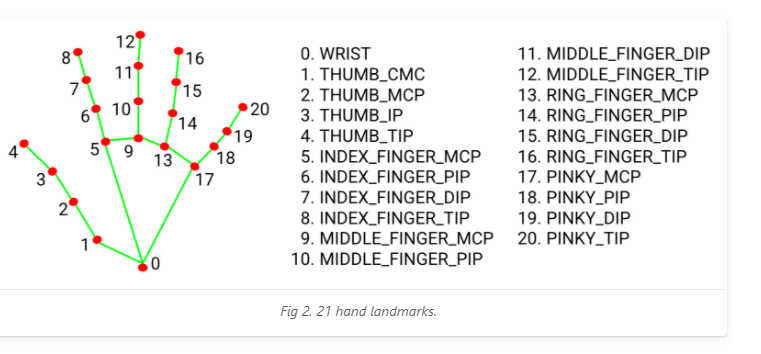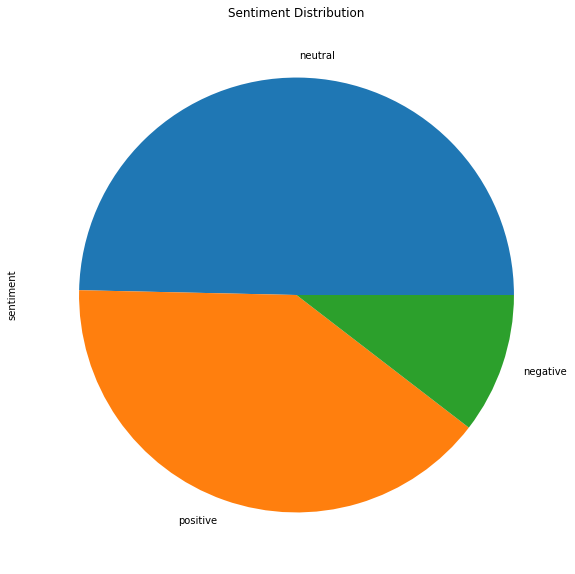Playing Chrome Trex Game with Gestures
Play Trex Game on Chrome By Gesture Using OpenCV and Mediapipe
Hello there surfer! Since few days, I am thinking about some cool projects that can be done within some hours using Mediapipe and OpenCV in Python. In this blog, I am writing about how can we play the popular trex game by only moving our fingers in front of the camera. Many of us have played this game but none of us were interested to play. 🤣🤦♂️🤦♂️ Well in this blog, we are going to play with with full intention.
This blog is the part of the series #7DaysOfComputerVisionProjects. Links to the blogs and videos of each projects are:
-
Real-time Background Changing: Video Blog -
Air Mouse: Control Mouse with Gestures Video Blog -
Play Trex Game With Gesture Video Blog -
Auto Dino: Play Trex Game Automatically Video Blog -
Gesture Based Writing Video Blog -
Game: Kill The Fly Video Blog -
Gesture Based Calculator Video Blog
Prerequisties
- Mediapipe: Install it using
pip install mediapipe. - OpenCV: It will be installed by default while installing
mediapipe. - Keyboard: Not the physical one because we are simulating key events using gestures.
pip install keyboard.
Once installed make sure you can use them. Just import them and see if any error pops up.
import mediapipe as mp
import cv2
import numpy as np
import keyboard
Using keyboard package is pretty easy just like mouse package. For test, we are going to simulate down and then !echo hey. I am using Jupyter Notebook hence I have to use ! to use windows commands.
# lets simulate down key and hello world
keyboard.press_and_release("!,e,c,h,o,space,h,e,y")
# !ECHO HEY
We can even use keys like control.
# lets simulate down key and hello world
keyboard.press_and_release("h,e,l,l,o,ctrl+a")
HELLO
The focus is not on the Keyboard package but to play a dino game. We will do something like gesture recognition based on the distance between certain landmarks. So lets define a method to find Euclidean distance.
def euclidean(pt1, pt2):
d = np.sqrt((pt1[0]-pt2[0])**2+(pt1[1]-pt2[1])**2)
return d
euclidean((4, 3), (0, 0))
5.0
Writing a Code
Step By Step
It is necessary to view the landmark position before making a gesture assumptions. Please follow the below image.
 Source: Official Hands Page
Source: Official Hands Page
- Start by beginning a camera.
cam = cv2.VideoCapture(0) - Define a frame size in our case 520 rows and 720 columns.
fsize = (520, 720) - Take modules
drawing_utilitiesandhandsfrom Mediapipe solutions’s. As the name,drawing_utilswill draw landmark here and thehandswill let us work with detection models.mp_drawing = mp.solutions.drawing_utils mp_hands = mp.solutions.hands - Define a variable to count the frame and make a constant to check the events on those frame count.
check_every = 10 check_cnt = 0 - Prepare a variable to hold last event name.
last_event = None - Now prepare a Mediapipe Hand object by giving arguments like
max_num_hands,min_detection_confidenceand so on. As name suggests,max_num_handsis to search up to that number of hands andmin_detection_confidenceis the minimum confidence threshold value of detection and below which, detected hands are discarded.with mp_hands.Hands( static_image_mode=True, max_num_hands = 2, min_detection_confidence=0.6) as hands: - Read a Camera frame.
while cam.isOpened(): ret, frame = cam.read() if not ret: continue - Flip the frame to look like selfie camera.
frame = cv2.flip(frame, 1) - Resize frame to our desired size.
frame = cv2.resize(frame, (fsize[1], fsize[0])) - Extract width and height of frame.
h, w,_ = frame.shape - Convert frame from BGR to RGB because
Handobject expects image as a RGB format.rgb = cv2.cvtColor(frame, cv2.COLOR_BGR2RGB) - Pass the RGB image ot
processmodule ofHandobject to get the result.res = hands.process(rgb) - Now for each hand, we will be extracting landmarks of fingers. Like index finger’s tip, dip, middle and so on. There are overall 20 landmarks for each hand. After extracting, we need to convert it back to pixel coordinate world.
if res.multi_hand_landmarks: for hand_landmarks in res.multi_hand_landmarks: index_tip = mp_drawing._normalized_to_pixel_coordinates( hand_landmarks.landmark[mp_hands.HandLandmark.INDEX_FINGER_TIP].x, hand_landmarks.landmark[mp_hands.HandLandmark.INDEX_FINGER_TIP].y, w, h) thumb_tip = mp_drawing._normalized_to_pixel_coordinates( hand_landmarks.landmark[mp_hands.HandLandmark.THUMB_TIP].x, hand_landmarks.landmark[mp_hands.HandLandmark.THUMB_TIP].y, w, h) middle_tip = mp_drawing._normalized_to_pixel_coordinates( hand_landmarks.landmark[mp_hands.HandLandmark.MIDDLE_FINGER_TIP].x, hand_landmarks.landmark[mp_hands.HandLandmark.MIDDLE_FINGER_TIP].y, w, h) - Now if the current count of frame is equal to the value we defined earlier, then check for events.
if index_tip is not None: if check_cnt==check_every: - If the distance between index finger’s tip and middle finger’s tip is less than 60 then consider that space is pressed. i.e touch index finger and middle finger for Jump. The value 60 will be relative to the frame size. Else, if last event is also Jump, then set last event to none.
if index_tip is not None and middle_tip is not None: if euclidean(index_tip, middle_tip)<40: last_event = "jump" else: if last_event=="jump": last_event=None - If the distance between index pip, and thumb tip is less than 60 then consider that down key is pressed. i.e move thumb near to the bottom of index finger for duck. Else if last event is also duck, then set last event to none.
if thumb_tip is not None and index_tip is not None: if euclidean(thumb_tip, index_pip) < 60: # 60 should be relative to height/width of frame last_event = "duck" else: if last_event=="duck": last_event=None - After checking all events, set frame count to 0.
check_cnt=0 -
- Finally, if current frame count has been reseted then apply the event. And increase the frame count.
if check_cnt==0: if last_event=="jump": keyboard.press_and_release("space") elif last_event=="duck": keyboard.press("down") else: keyboard.release("down") print(last_event) check_cnt+=1
- Finally, if current frame count has been reseted then apply the event. And increase the frame count.
- Draw each landmarks.
python mp_drawing.draw_landmarks(frame, hand_landmarks, mp_hands.HAND_CONNECTIONS) - Show the frame.
cv2.imshow("Controller Window", frame) - If Escape is pressed then close.
if cv2.waitKey(1)&0xFF == 27: break
Final Code
cam = cv2.VideoCapture(0)
fsize = (520, 720)
last_event = None
check_cnt = 0
check_every = 5
mp_drawing = mp.solutions.drawing_utils
mp_hands = mp.solutions.hands
with mp_hands.Hands(
static_image_mode=True,
max_num_hands = 1,
min_detection_confidence=0.6) as hands:
while cam.isOpened():
ret, frame = cam.read()
if not ret:
continue
frame = cv2.flip(frame, 1)
frame = cv2.resize(frame, (fsize[1], fsize[0]))
h, w,_ = frame.shape
rgb = cv2.cvtColor(frame, cv2.COLOR_BGR2RGB)
rgb.flags.writeable = False
res = hands.process(rgb)
#cv2.imshow("roi", roi)
rgb.flags.writeable = True
if res.multi_hand_landmarks:
for hand_landmarks in res.multi_hand_landmarks:
index_dip = mp_drawing._normalized_to_pixel_coordinates(
hand_landmarks.landmark[mp_hands.HandLandmark.INDEX_FINGER_DIP].x,
hand_landmarks.landmark[mp_hands.HandLandmark.INDEX_FINGER_DIP].y,
w, h)
index_tip = mp_drawing._normalized_to_pixel_coordinates(
hand_landmarks.landmark[mp_hands.HandLandmark.INDEX_FINGER_TIP].x,
hand_landmarks.landmark[mp_hands.HandLandmark.INDEX_FINGER_TIP].y,
w, h)
index_pip = np.array(mp_drawing._normalized_to_pixel_coordinates(
hand_landmarks.landmark[mp_hands.HandLandmark.INDEX_FINGER_PIP].x,
hand_landmarks.landmark[mp_hands.HandLandmark.INDEX_FINGER_PIP].y,
w, h))
thumb_tip = mp_drawing._normalized_to_pixel_coordinates(
hand_landmarks.landmark[mp_hands.HandLandmark.THUMB_TIP].x,
hand_landmarks.landmark[mp_hands.HandLandmark.THUMB_TIP].y,
w, h)
middle_tip = mp_drawing._normalized_to_pixel_coordinates(
hand_landmarks.landmark[mp_hands.HandLandmark.MIDDLE_FINGER_TIP].x,
hand_landmarks.landmark[mp_hands.HandLandmark.MIDDLE_FINGER_TIP].y,
w, h)
if index_tip is not None:
if check_cnt==check_every:
if index_tip is not None and middle_tip is not None:
if euclidean(index_tip, middle_tip)<40: # 60 should be relative to the height of frame
last_event = "jump"
else:
if last_event=="jump":
last_event=None
if thumb_tip is not None and index_tip is not None:
print(euclidean(index_tip, middle_tip))
if euclidean(thumb_tip, index_tip) < 60:
last_event="duck"
else:
if last_event == "duck":
last_event = None
check_cnt=0
if check_cnt==0:
if last_event=="jump":
keyboard.press_and_release("space")
elif last_event=="duck":
keyboard.press("down")
else:
keyboard.release("down")
print(last_event)
check_cnt+=1
mp_drawing.draw_landmarks(frame, hand_landmarks, mp_hands.HAND_CONNECTIONS)
cv2.imshow("Controller Window", frame)
if cv2.waitKey(1)&0xFF == 27:
break
cam.release()
cv2.destroyAllWindows()
Finally
This is the end of our blog and I hope you learned something valuable from here. Please let me know if you found any problems or errors. There is a video version of this blog and you can watch this on YouTube too.





Comments